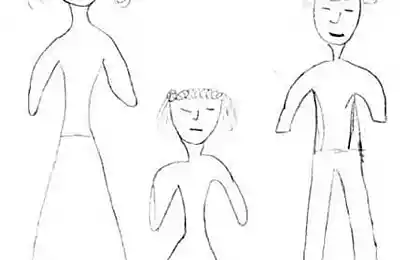1085
The genetic imprint of childhood man carries a lifetime

The low social origin and difficult childhood to lay the imprint of human genes, is well recognized in adulthood, established Canadian and British genetics.
Can genes oligarch "remember" that in his childhood he was chronically malnourished and forever sniffling because of the lack of warm coats, living in a communal apartment in ecologically disadvantaged suburbs? Even thirty years ago any geneticist would have answered this question in the negative. He also answers now, but asked to specify what is meant by "remember", and if the genetics will fall quite advanced, and what exactly is meant by "genes».
Such clarification became necessary after the discovery of extra - epigenetic - the mechanisms of inheritance, do not affect the DNA molecule - genetic program hidden in the cell nucleus.
In terms of nuclear DNA - the basic repository of genetic information the cell - different heartbreaking fact that its support for many years fed a child a potato and suffering from the cold, not very interesting, because bad food, worn galoshes and an apartment without a toilet did not able to change the sequence of the nucleotides in the DNA molecule - the main genetic program of development and functioning of the body.
But if you compare the DNA with the score, but the life of the body - with its orchestral performance, the sound of the opus will consist of exactly how the notes of the score (genes) will be read and executed by the musicians - the mechanisms responsible for their expression.
The musicians are not able to change the text of the score, but there are ways to vary - though sometimes quite strongly - the sound of music. These methods of information transfer, additional to the hereditary genetic program - DNA score - are called epigenetic (ie additional to the actual genes). And now, the molecular genetics of mounting evidence in favor of that
epigenetic, that is, the mechanisms regulating the activity of genes can be highly responsive to external factors, and the effect of these influences can be traced not only within a single body, but also his offspring.
DNA methylation - the main one is already open epigenetic scenarios - regulates the expression of genetic "score" through adherence to certain parts of the DNA methyl radical CH3, disturbing the process of transcription, ie, as if blocking the gene methyl universal "cap».
Methylation controls the formation of new organs, turning on and off certain sections of DNA in the growth of the embryo. Continued operation of the tissue, as well as the whole body, also depends on the different schemes methylation of DNA-containing chromatin in the nuclei of differentiated cells, and the violation of these schemes can be accompanied by severe systemic dysfunction - the activation of "sleeping" genes (cancer), chronic metabolic disorders (diabetes ) and t. d.
It turned out that the function of methylation is very plastic and forces to be different from each other, not even identical twins, whose genetic "score" are identical.
Apparently, the scheme methylation, regulating gene expression, affect the process of adapting the program to the genetic changes in the environment, but neither the principle of operation of this mechanism, or its role in the evolution still not clear.
Especially intriguing observation group represented Canadian and British geneticists reported in the collective article published in the International Journal of Epidemiology, the methylation pattern that is very different from people not only from different social classes, but is especially strong among grown in different economic and living conditions. In other words, diametrically different conditions in which children grow from wealthy and poor families, imprinted for life - "remember" - in their organisms at the genetic level.
To discover this fact allowed the comparison of DNA profiles of 40 people since 1958, ie since its birth, participating in long-term program of medical and scientific monitoring, covering a total of 10,000 Britons. For the study of DNA have been specially selected 45-year-old representatives of diametrically opposed on the level and quality of life of social groups, as well as those who grew up in an extremely tight bordering on poverty conditions, and those who brought up "in the best houses of England».
Methylation levels were measured in 20 control areas thousands of DNA. To the surprise of genetics, differences in levels were very high in a pretty impressive group of 6,000 genes, while inside
in a certain way, a group of methylated DNA belonging to people from the higher social strata.
Most of the differences in the methylation of DNA (1252) have accumulated between those who had a different childhood - "very difficult" or "very safe." But when comparing the methylated DNA of people with different levels of life (eg, CEO of and laborers), but grew up in roughly the same conditions, differences appeared in more than two times less - 545.
Thus, the authors believe, genetic profiles of people who were born one "prince" and the other "poor", show the increasing number of differences in the mechanism of genetic regulation than the genes of people who have been established to 45 years. In other words, all life, we literally carry a genetic imprint of childhood, affecting our health and our character, considering how closely may be associated with mental activity of hormone, enzyme regulators and other subsystems.
The authors note that the purpose of their study was to find out the fact of the relationship of socioeconomic factors and genetic pattern within a generation of people. What specific diseases and disabilities are fraught with genetic fingerprints, inherited from a difficult childhood "oligarchs" and "poor", only to be seen (not excluded that in the case of "difficult" childhood epigenetic regulators play just a protective function, and therefore the number of differences more) . Also to be seen whether the generations migrate epigenetic innovations that do not affect the structure of DNA.
Prices for the development of the most famous logos (12 photos)
The scientists compared the genomes of 29 mammals, including humans























